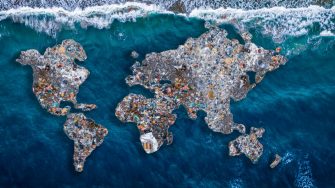Background
As we approach the fifth and final round of negotiations for the global plastic treaty, in Busan, Republic of Korea in November 2024, pressure is increasing for countries to deliver an ambitious treaty that will effectively curb plastic pollution. A persistent lack of data to inform indicators of progress has hindered the global and national decision-making needed to mitigate plastic pollution, encourage sustainable practices, and support circular economy initiatives.
Comprehensive data is crucial to track the full lifecycle of plastics, from production to disposal and environmental release. Ensuring the treaty includes equitable processes that promote transparency and accountability and improve the availability data over time will be crucial to its success.
Event overview
As part of the 'Rethinking Plastic Life' event hosted by the Ministry of Environment, Republic of Korea and the Korea Environment Corporation, the UNSW Centre for Sustainable Development Reform (CSDR), Global Ocean Accounts Partnership (GOAP) Secretariat, World Resources Institute Indonesia, Indonesia National Plastic Action Partnership (NPAP), Our Sea of East Asia Network (OSEAN) and Tangaroa Blue Foundation will convene a session on data-driven approaches to decision-making for plastics management.
The session will offer a technical deep dive into the types and sources of data available on plastics across the ‘full life cycle’ and how this data could be used to inform decision-making including the development of national action plans and monitoring effectiveness. Case studies will provide national examples of successful and impactful data management from Indonesia and Australia.
During the seminar, several key resources will be introduced which aim to support countries in assessing current data availability and reliability across the life cycle of plastic. These include the Plastic Data Checklist and User Guide (view here) and Global Waste Data Tracker, to be launched at INC-5, and Indonesia NPAP’s Plastic Data Lifecycle Framework developed with the NPAP’s experts and members.
The session is designed to be interactive, utilising a mix of presentations, country case studies and interactive discussions. By engaging civil society, financial institutions, and research institutes, the event will foster collaboration and capacity building to support evidence-based policymaking on plastics.

